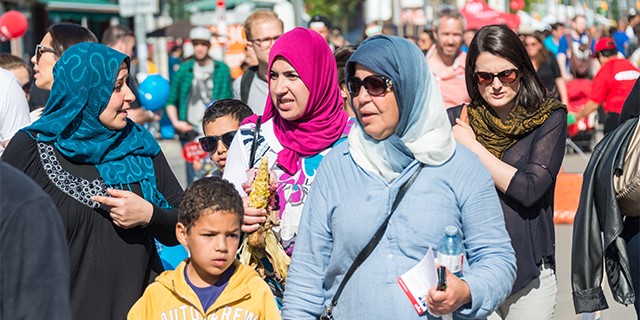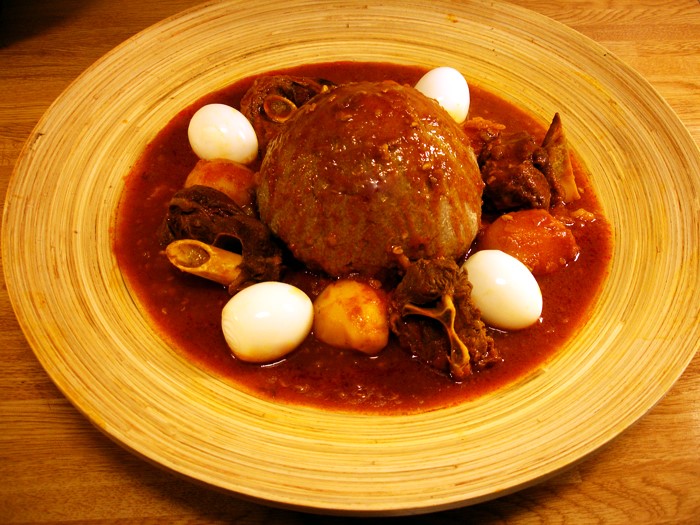Northern African marriages are rich in tradition and symbolism. They play a huge role in the cultural diversity of the region. Understanding the dynamics supporting these unions provides insight into the traditional and modern influences shaping them.
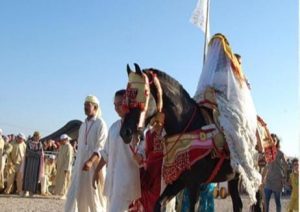
Understanding Northern African Marriages
At the heart of Northern African marriages lies a deep-rooted commitment to tradition. Family and community play critical roles in the union. They ensure that cultural norms and values are upheld over generations. Marriage is regarded as a sacred bond, strengthening social ties and preserving cultural identities.
The Role of Tradition in Northern African Marriages
Tradition is the cornerstone of Northern African marriages, influencing every aspect. From the selection of a suitable match to the elaborate wedding ceremonies, tradition guides the entire process. Marriages serve as a means of uniting families, tribes, and communities, reinforcing social structures and promoting harmonious relationships.
In the Northern African region, the process of finding a suitable spouse involves a careful consideration of various factors. These factors include:
- Family background
- Social status, and
The involvement of family members in the matchmaking process ensures that the prospective couple shares common values and goals, fostering a solid foundation for their future together. Once a suitable match is found, the wedding preparations begin. Northern African wedding ceremonies are known for their grandeur and extravagance. They often involve multiple days of celebrations, with vibrant colors, traditional music, and elaborate feasts. These ceremonies are a celebration of the union between two individuals and a display of community solidarity and cultural pride.
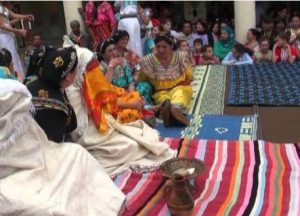
Modern Influences on Northern African Marriages
While tradition forms the foundation, modern influences increasingly shape Northern African marriages. Factors such as globalization, urbanization, and the impact of the digital age have introduced new dynamics into the marital landscape. For instance, couples now have the opportunity to meet through online dating platforms or form relationships that transcend cultural boundaries.
With the advent of technology, long-distance relationships have become more common in Northern African societies. Young individuals often travel abroad for education or work, leading to cross-cultural encounters and the possibility of forming international relationships. These modern influences challenge traditional notions of marriage, prompting individuals to navigate between their cultural heritage and the opportunities presented by the globalized world.
Despite these changes, it is essential to strike a balance between tradition and modernity, ensuring the preservation of cultural heritage while embracing the benefits brought forth by the evolving world. Northern African societies continue to cherish their customs and values, adapting them to the changing times without compromising their identity.
Marriage in Northern Africa is not just a union between two individuals; it reflects a community’s collective identity and shared history. The commitment to tradition and the willingness to embrace modern influences create a unique tapestry of love, respect, and cultural diversity that defines Northern African marriages.
The Cultural Significance of Marriage Rituals
Marriage rituals in Northern Africa are symbolic, representing the community’s values, beliefs, and aspirations. These ceremonies are critical cultural milestones that unite individuals in a sacred bond and celebrate the union within the broader social context.
One of the most fascinating aspects of Northern African wedding ceremonies is the intricate symbolism found in each element of the celebration. From the traditional attire adorned by the bride and groom to the exchange of gifts, every action carries religious, spiritual, or cultural significance. For example, the bride’s dress often incorporates intricate patterns and symbols representing fertility, prosperity, and protection from evil spirits. The groom’s attire may include specific colors or patterns that symbolize his readiness to take on the responsibilities of marriage.
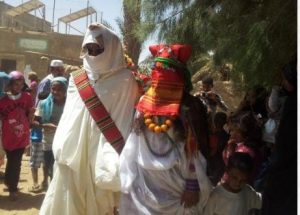
Symbolism in Northern African Wedding Ceremonies
Each element of a Northern African wedding ceremony holds symbolic meaning. From the traditional attire adorned by the bride and groom to the exchange of gifts, every action carries religious, spiritual, or cultural significance. These rituals ensure the continuity of cultural practices and promote a sense of collective identity.
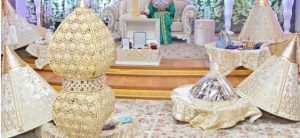
Another significant symbol in Northern African wedding ceremonies is the exchange of gifts. The gifts exchanged between the bride and groom’s families represent material blessings, the merging of two families, and the establishment of new relationships. These gifts often include traditional items such as jewelry, textiles, or even livestock, each carrying its symbolic meaning.
The Impact of Religion on Marriage Rituals
Religion profoundly influences marriage rituals in Northern Africa. Depending on the region, Islam, Christianity, or indigenous belief systems shape the practices surrounding matrimony. Islamic marriage contracts, for example, outline rights and responsibilities, including dowry agreements, witness requirements, and marital expectations.
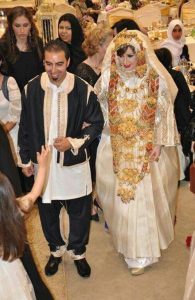
Christian wedding ceremonies in Northern Africa often incorporate Western traditions and local customs elements. The exchange of vows, the blessing of the rings, and the pronouncement of the couple as husband and wife are all significant moments that symbolize the couple’s commitment to each other and their faith.
The fusion of religious and cultural customs creates a unique tapestry of rituals, reflecting the diversity within the region and exemplifying the harmonious coexistence of different belief systems. These rituals unite individuals in marriage and serve as a reminder of the rich cultural heritage and the values that bind the community together.
The Contribution to Cultural Diversity
Northern African marriages are a cultural melting pot where different traditions converge. The intricate intersection of various cultures within these unions leads to a vibrant tapestry of diversity, enriching the overall cultural landscape.
The Intersection of Cultures in Northern African Marriages
Due to its location at the crossroads of Africa, the Middle East, and the Mediterranean, Northern Africa experiences a convergence of cultural influences. Marriages in the region often bring together people from different ethnic backgrounds, tribes, or countries. This blending of cultures contributes to the multicultural fabric of Northern African society.
How Northern African Marriages Enhance Global Cultural Diversity
The significance of Northern African marriages extends beyond the region, influencing global cultural diversity. As people from Northern Africa migrate and establish communities in other parts of the world, they bring their marriage traditions, customs, and values. This cultural exchange fosters understanding, promotes tolerance, and adds valuable dimensions to the global tapestry of human experiences.
Challenges and Changes in Contemporary Northern African Marriages
In the face of globalization and changing societal dynamics, contemporary Northern African marriages encounter new challenges and undergo transformations. Adapting to these changes while preserving the essence of tradition can be a delicate endeavor.
The Influence of Globalization on Northern African Marriages
Globalization impacts Northern African marriages through the permeation of Western ideals, changing gender roles, and increased mobility. The younger generation, often exposed to Western influences through media and education, may question traditional practices and aspire for more individual autonomy. This can lead to renegotiating marital expectations and redefining the roles and responsibilities of husbands and wives.
Balancing Tradition and Modernity in Contemporary Marriages
Northern African couples face balancing tradition with modernity in navigating a rapidly changing world. Many seek to embrace both aspects, customizing their weddings to incorporate elements of practice and personal preferences. By engaging in open dialogue and finding common ground, couples can create unions that resonate with their cultural roots while reflecting their aspirations.
The Future of Northern African Marriages
Looking ahead, Northern African marriages will continue to evolve while upholding their cultural significance. Predicted trends highlight both the preservation of traditions and the adaptation to societal changes.
Predicted Trends for Northern African Marriages
While tradition remains at the core, future Northern African marriages may witness a greater emphasis on gender equality, increased intercultural unions, and the integration of technological advancements into wedding ceremonies. These trends reflect the ongoing transformation of society and the desire to find a harmonious balance between heritage and progress.
Conclusion
As cultural diversity becomes increasingly valued and celebrated, Northern African marriages will continue to play a vital role in shaping the global cultural landscape. The richness of these unions, with their deep-rooted traditions, symbolism, and multicultural influences, serves as a reminder of the beauty that emerges when different cultures interweave and coexist.


